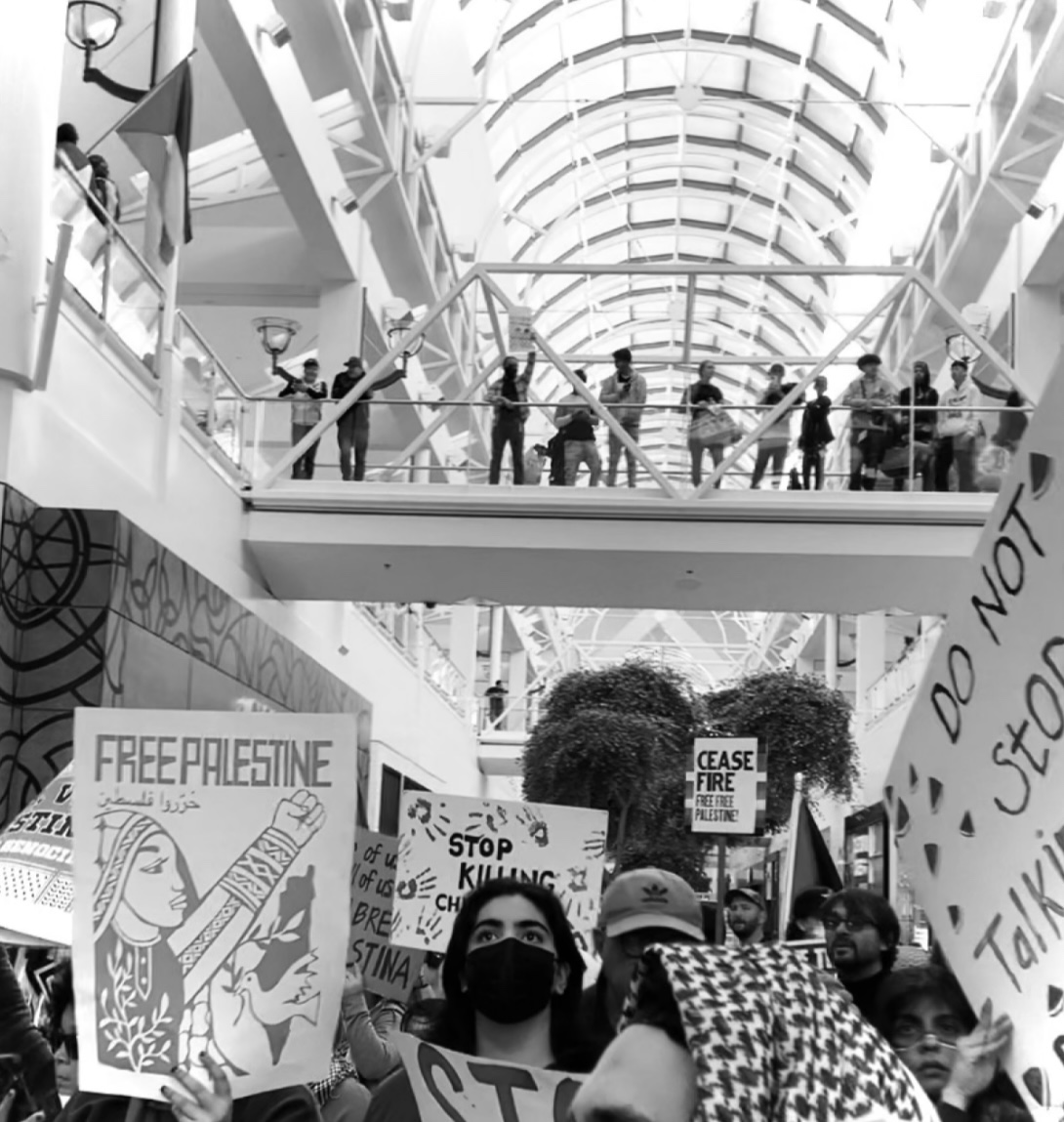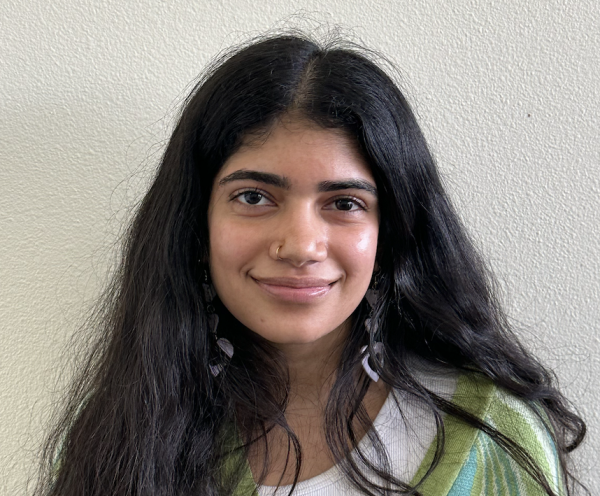On Saturday March 2, Jules MacDonald, a first year student at Sonoma State, attended a Hands off Rafah protest in San Francisco. Roughly 20,000 people participated, marching through the streets, listening to activist speakers, and chanting. MacDonald said that it was a “really great symbol of community” and a “beautiful experience,” until they reached the Consulate General of Israel.
As the demonstrators reached their destination, they were met with blockades of officers from the San Francisco Police Department in full riot gear. “They already had tear gas pointed at us… their batons out and everything, even though we had just approached,” MacDonald said.
After protestors were pushed against the consulate’s barriers due to the high concentration of people, MacDonald said that the SFPD began beating and pepper-spraying civilians. “They had no care for the fact that there were elderly and disabled and children… They did nothing to protect the citizens,” MacDonald said. “I was at the front trying to protect [them], because there’s often a lot of children that are right up at the front, so I did get hit.”
Several people were injured after the incident, some sustaining serious injuries. Reaching out to fellow protestors, Jules found that children were among those harmed by police brutality. “It was an attack. It was very harmful and not surprising coming from the police, but it’s disgusting behavior,” MacDonald said.
The SFPD told NBC News the group was, “[Becoming] violent and [beginning] to commit crimes ranging from assault to felony vandalism.” Jules and other protestors at the event maintain that the rally was entirely peaceful.
MacDonald has been an activist for five years now, supporting several causes through both organizing and attending protests. These movements include labor unions, women’s rights, Black Lives Matter, and, most recently, the Free Palestine Movement.
This is not the first time she has come face-to-face with institutional violence.
“I just want to make it clear that through our demonstrations, we don’t want a temporary ceasefire. We want an immediate and permanent ceasefire. This genocide and ongoing occupation has been happening for too long and it should not have started in the first place,” MacDonald said. “Being an American feels so complicit, it motivates me to go out and fight for a ceasefire everyday… We will continue to be met with police violence and denial from governmental powers attempting to silence us but we will be heard, whatever it takes until Palestine is free.”
MacDonald experienced police retaliation during her work for the BLM Movement and to protest the overturning of Roe v. Wade. In the latter incident, after taking over freeway lines and stopping traffic, the police began pushing protestors off the road with guns pointed at their heads.
MacDonald recognized the inherent risk involved, however, she did not let the threat of violence deter her. ”I’m fully invested in what I believe in and what I’m there for. That takes precedence. I would be ok being harmed or risking my life for the cause that I’m fighting for,” she said.
MacDonald said that she feels disappointed and discouraged with the lack of activism on campus compared to the Pro-Palestine organizations at other college campuses.
“I wish that more people were speaking up on campus. I wish [President Mike Lee] would address it. I wish they would have a vigil or a sit-in or anything, a bare minimum,” MacDonald said.
MacDonald posits that the lack of student engagement in activism is not caused by an absence of interest, but rather that students don’t know how to start and don’t feel supported in doing so.
The first step is knowledge. “Through education comes power,” said MacDonald. “And then you’re informed and can resist in your own small ways that you’re comfortable with.”
To those who fear violence, retaliation, and alienation from their peers, Jules brings awareness to the blossoming community built through activism. “You will find like-minded people that are fighting for the same thing,” MacDonald said. “Protection comes through community and organizing. Resistance is power.”




































